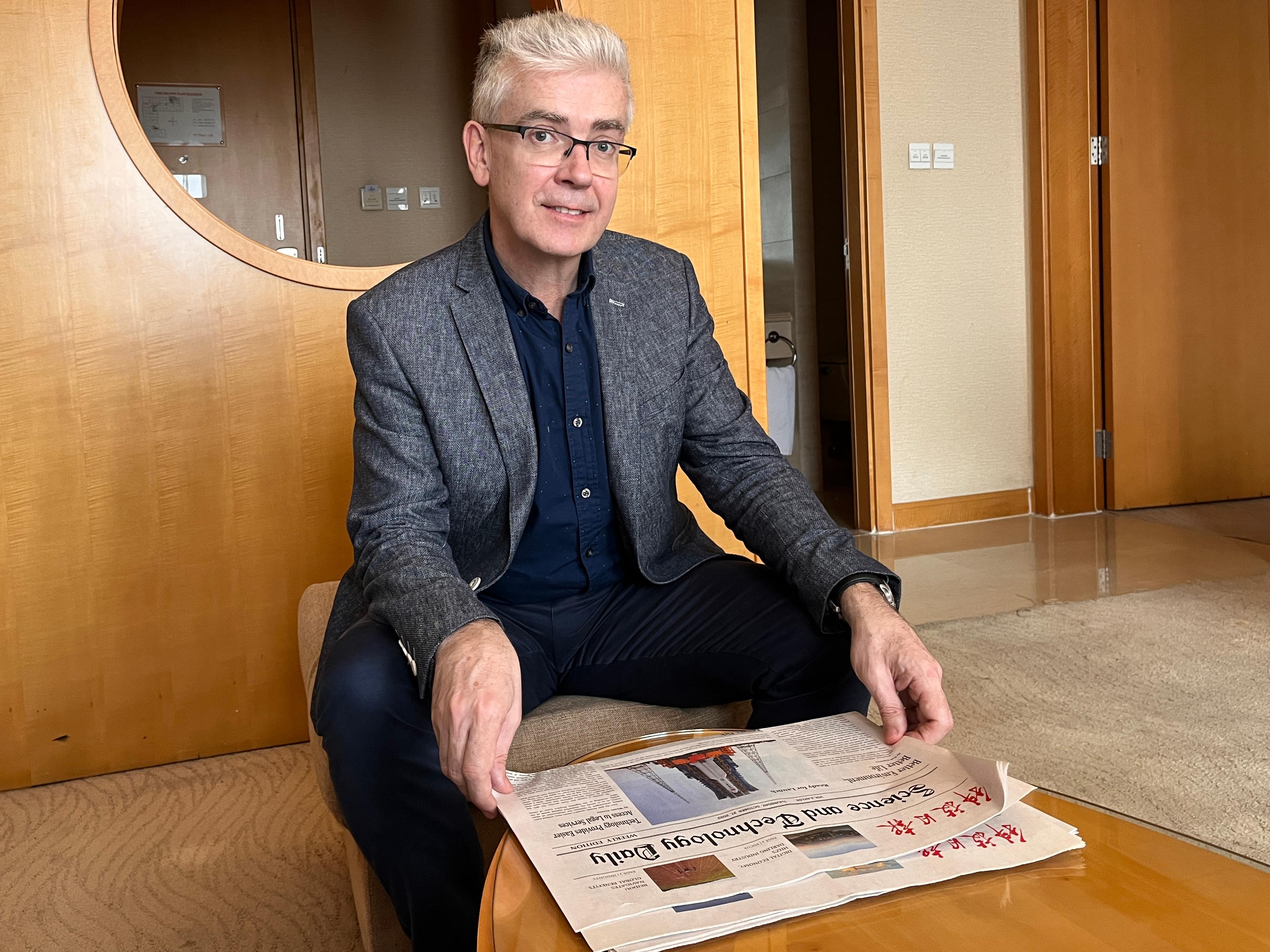To Ignite Public Curiosity About Science

Professor Henry Curran. (PHOTO: S&T DAILY)
By LONG Yun & BI Weizi
Professor Henry Curran, a renowned scientist, is the director of the Combustion Chemistry Center at University of Galway in Ireland and an honorary professor at Northwestern Polytechnical University (NPU) in China.
In a recent interview with Science and Technology Daily, Curran discussed how he became interested in scientific research and ultimately chose to focus on combustion chemistry.
Promoting energy efficiency
Curran said he became increasingly interested in chemistry as he progressed through his academic journey. One of his most significant contributions to the field is the development of mechanisms for the primary reference fuels heptane and isooctane. These fuels are essential to the gasoline and diesel industry as they serve as a benchmark for determining these fuels' octane rating. The octane rating indicates how well a fuel can resist engine knocking or detonation, a process that can damage the engine.
Curran's work on these mechanisms has helped the combustion community simulate primary reference fuels, understand the chemistry of gasoline and diesel fuel oxidation, and predict emissions, contributing to reducing particulate emissions and eventually improving air quality.
He is also interested in developing low-carbon fuels such as hydrogen and ammonia, which can replace carbon-based fuels in combustion engines, reducing greenhouse gas emissions. Additionally, research is being done on capturing carbon dioxide emissions and using them in combination with hydrogen to produce fuels, creating a sustainable cycle of energy generation.
One area where Curran sees combustion research as having an important role is in the field of advancing space exploration. Detonation engines are being developed, which rely on a better understanding of combustion chemistry to improve their performance. By better-controlling combustion, more powerful and efficient engines can be generated that can be used in space exploration.
Unlock the secrets of science
Despite the importance of his research, Curran recognizes the significance of getting science more accessible to the general public. He believes science outreach is crucial, especially for young people. He attaches great importance to the power of "peer influence," adding that younger students should be engaged with and taught by both undergraduate and graduate students, who can act as role models and inspire them to pursue careers in science. Furthermore, Curran emphasizes the importance of female professors and role models for young girls, encouraging them to see that science is a field for everyone.
Curran noted that there are effective ways to engage and inspire the public's interest in science. He cites the example of Space Day of China, an activity to popularize science, where children's paintings of space and astronauts were displayed outside lecture halls. According to him, the paintings inspired and engaged the public, particularly young people, showing that science can be vivid and inspiring.
Curran encourages scientists to continue to engage with the public in similar ways, highlighting the importance of making science accessible and relatable to everyone.
For young people who aspire to become scientists, Curran's advice is simple: "Always ask why." He said a thirst for knowledge is a key attribute for scientists and noted that young people could unlock the secrets of the universe and make a positive impact on society by asking questions and seeking answers.
An "energetic" and "forward-looking" country
In terms of international collaboration, Curran recalled some wonderful times working with scientists and students from China in his Irish lab. He emphasized the importance of collaboration among scientists worldwide to advance knowledge and improve the world.
This Irish scholar is intrigued by China's advancements in technology and science, mentioning that this country left an impression of being "energetic" and "forward-looking." He applauded China's impressive progress in combustion and flame research, noting an increase in quality of research papers from Chinese scientists.
When talking about how to promote effective and efficient international cooperation, he called for more exchange programs and resources to support joint study. While there still exist some challenges, increasing support is being put in place to foster international cooperation, and cross-border collaboration in term of sharing knowledge is critical to finding solutions of these complex challenges, he said.
This article is contributed by NPU.






